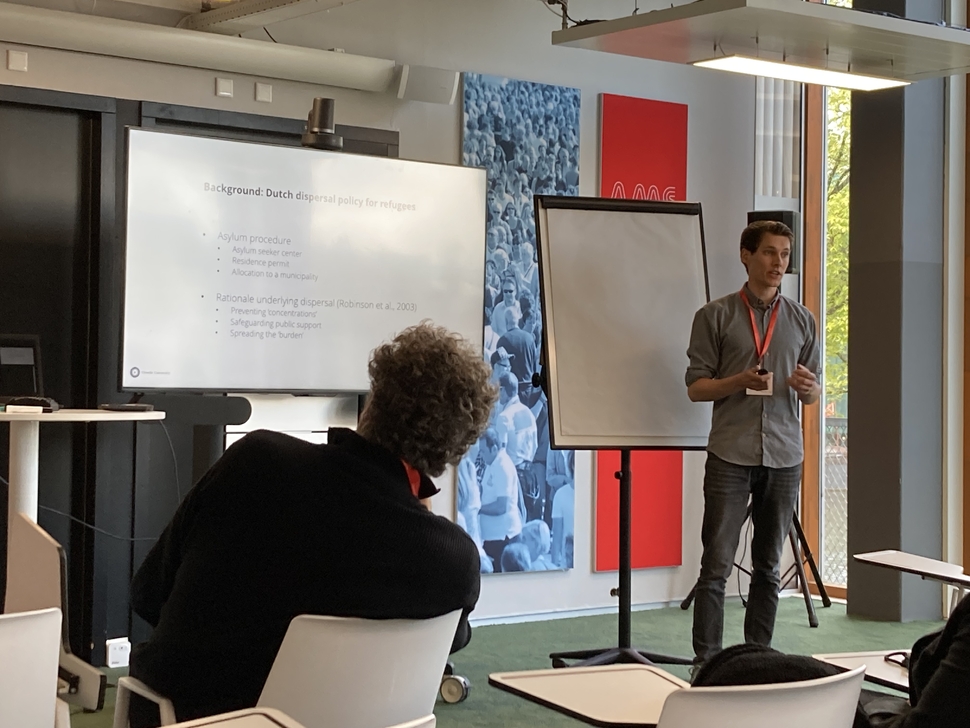Source: Baalbergen, Bolt, Lin & Hooimeijer (2024), Arrival infrastructures and refugee enrollment in higher education, presented at the 2024 AMS Conference Reinventing the City.
The research project, conducted by Ids Baalbergen, Gideon Bolt, Yanliu Lin & Pieter Hooimeijer (Utrecht University), focused on Syrian, Eritrean, Ethiopian, Iraqi and Iranian migrants in the Netherlands. Based on CBS micro data, they investigated the factors behind the educational opportunities of these refugees in the Netherlands.
According to existing research by Kanas and Van Tubergen from 2009, the socio-economic situation of these migrants strongly depends on whether they are retrained in the Netherlands. Baalbergen explains. When refugees find a job, they are often overqualified because diplomas from their country of origin are not recognized in the Netherlands. To fix this, refugees in the Netherlands need to enroll in education in the Netherlands. But according to the researchers, the chances of doing this so are co-determined by the city and neighborhood you end up in.

Ids Baalbergen presenteert tijdens de AMS conferentie 2024 (foto: redactie openresearch.amsterdam)
The authors found various factors that co-determine this outcome: what socio-economic status your neighbors have (with differences for men and women), whether there are educational institutions nearby, and/or weather or not the unemployment rate is high or low in the area. But the local political climate also appears to have an influence: in municipalities with election results that show more support for the political parties PVV, JA21 and Forum voor Democratie, refugees are less likely to (re)educate themselves compared to municipalities where these parties have less support.
"So if I understand correctly, as a refugee in the Netherlands you have no choice in which municipality you end up because of the national law, but at the same time where you end up determines your social-economical future", an audience member wants to know. Baalbergen nods. Another listener wants to know why there are no authorities that can recognize diplomas of migrants from the countries mentioned by the researchers. Unfortunately, the session time was too short for that discussion.